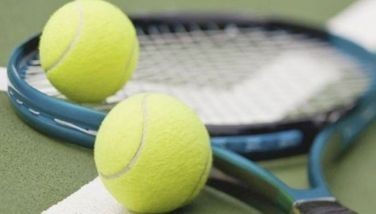SEA Games postmortem
The Southeast Asian Games in Bandung and Jakarta were filled with both expected and unexpected disappointments for Team Philippines. Predictions of second place (and even this writer’s expected fifth-place finish) were not reached, and the finger-pointing is bound to start again. But as the saying goes, instead of fixing the blame, let’s fix the problem.
The host country has the prerogative to include certain sports, and INASOC certainly exploited that advantage to the hilt. Games like one-cushion carom in billiards, speed skating and even bridge were included ostensibly to add to the hosts’ gold medal haul. It worked.
For our part, knowing we will be entering hostile territory and will most probably be cheated in varying degrees, what can we do to protect our athletes from having all their hard work go to waste?
The first is exercising the right to object. There were some opportunities for us to choose protecting our athletes instead of being diplomatic with the hosts, and we went along with the other visiting countries. Upon arrival at the athletes’ village in Palembang, our teams were told that billeting was six to a room. We could have objected to this, since it would mean mixing up athletes from different teams and even breaking up groups. On top of the unfamiliarity with your roommates, some athletes good-naturedly joked that they were forced to sleep with people who snored, and it kept them from sleeping properly. But the fact is a good sleep is essential to good performance, and we are sure to have lost some medals as a result of that policy. Aside from that is the stress of six people having to share one bathroom, which as anyone with a large family would know, is an unpleasant experience.
Also, our athletes were adversely affected by the transportation conditions in Palembang and Jakarta. Traffic is notoriously bad in both places. In Jakarta, our teams had to leave extra early, as some suffered through two hours of traffic just to get to their venues. In Palembang, air-conditioned buses were reserved for big groups. All other mini-vans used to shuttle athletes and officials were broken down and had no air-conditioning. The other option was taking the free pedicab, which fed you a steady diet of red dust and heat.
Also, we could rethink some of the traditions of the games. Our delegation was made to wait four hours before finally entering the main stadium for the opening ceremonies. In between, we passed through garbage, waited beside the fireworks set-up, stood outside as the smoke of parked cars and tons of fireworks clouded over us, and inside, endured half an hour of rain. Our baseball and softball contingent wisely left early, knowing they had games the next day. Again, the question in our officials’ minds was how many medals we lost after all that exposure to the elements.
Also, we could throw support behind some new sports. Tarung derajat, the native martial art of Indonesia, was hurriedly introduced as a demonstration sport after a convention in Bandung last April. Muaythai Association of the Philippines president Gen. Lucas Managuelod who also heads the national association in the sport, proudly reported that, after the two-day competition, the Philippines produced one gold, two silvers and two bronzes, second only to Thailand, which had one more gold medal. This despite only three months’ training, and having one of our six athletes suffer injury. Sadly, tarung derajat, which has only been around for roughly 20 years, has a better chance of becoming a permanent SEA Games sport than our own native arnis, which has been around for hundreds of years.
Lastly, we could put protests on record when we see obvious discrepancies in judging, such as in boxing, diving and karate, among others. Granted, there is very little likelihood that they will prosper, but what is important is going on the record and leading with our voices in the campaign to institute change in the way the biennial event is run.
* * *
The organizers of the Bostik World Arnis Open would like to thank the partners and supporters for making the event a tremendous success. Foreign participants from Switzerland, France, Italy, Germany, US and Poland were pleased with the way the event was run. Close to 500 participants entered the anyo (forms) and sparring competition, which was held at the SM Fairview Annex with the support of Vice-Mayor Joy Belmonte. Belmonte has also had arnis clinics held for barangay tanods in each of the congressional districts in the city.
Bostik, maker of well-known adhesive brands like Vulcaseal, Rugby and many others, saw the value in supporting the national sport. All equipment (inter-locking mats, headgear, body armor and padded sticks) were provided by Stiz, and leading brand of arnis equipment manufactured by Eljan Ventures, Inc. Eljan previously made its name in sports through its leading taekwondo brand Stix, and is branching out into other martial arts. A mark of the company’s success is its move to a bigger head office in Quezon City.
Next year, arnis clinics will also be held for the women of Quezon City, as part of the sports program of the office of the Vice-Mayor. The World Arnis Organization is also expanding its program to other parts of the country, in partnership with Cacoy Doce Pares of Cebu.
- Latest
- Trending



























